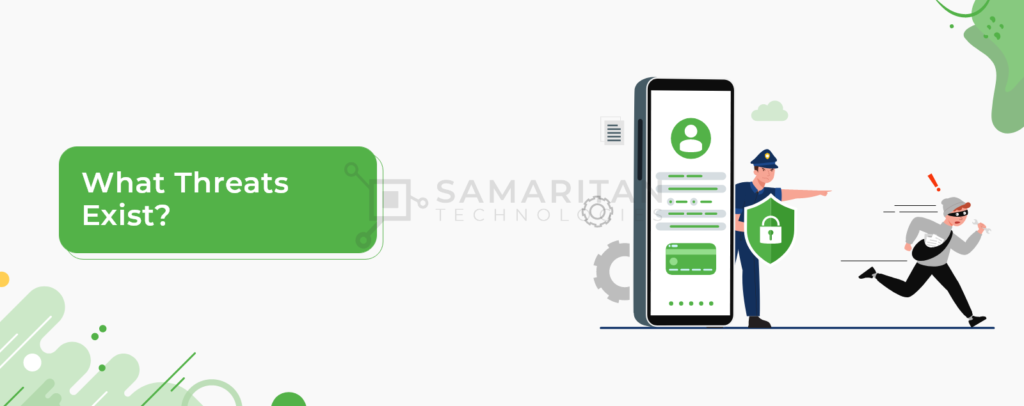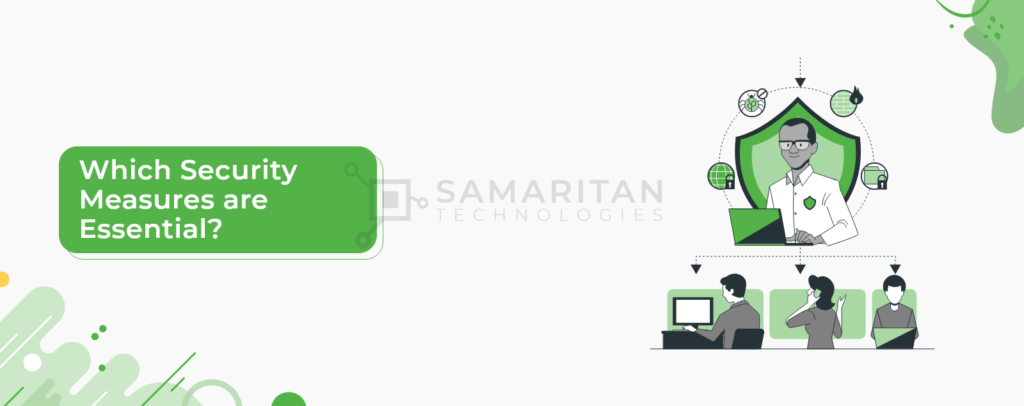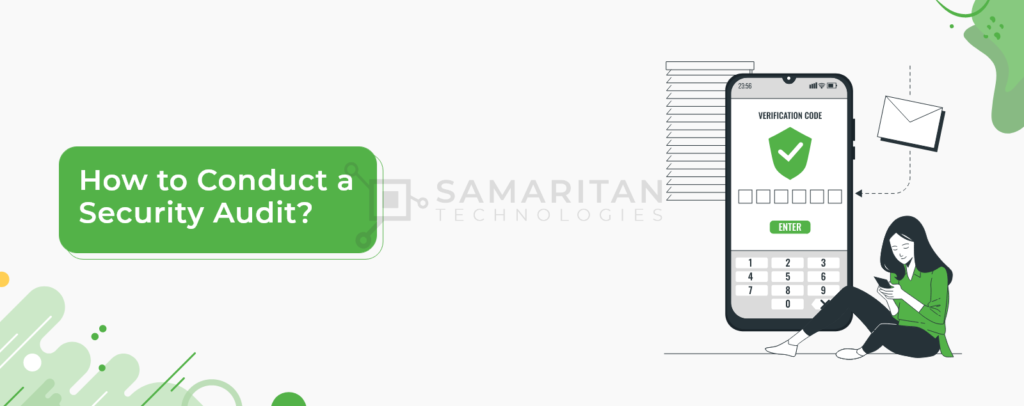iOS is one of the most popular and secure mobile operating systems in the world. However, that does not mean that your iOS app is immune to cyberattacks, data breaches, or privacy violations. As an iOS app developer, you have a responsibility to protect your app and your users from potential threats and risks. In this article, you will learn some tips and best practices to improve your iOS app security and keep your data safe. You will also learn how to use some of the built-in security features and tools that iOS provides, such as encryption, keychain, biometric authentication, and more.
What Threats Exist?
iOS applications are vulnerable to a variety of dangers in the broad internet that might jeopardize user data. The most frequent enemies include malware, illegal access, and data leaks. Developing effective security measures begins with an understanding of these dangers.

Malware and viruses: These are malicious software programs that can infect your iOS device and compromise your app’s functionality, data, or security. They can also steal your personal or business information, damage your device, or perform unwanted actions on your behalf. Some examples of malware and viruses that target iOS devices are XcodeGhost, WireLurker, and Masque Attack.
Unauthorized access: This is when someone gains access to your iOS device or app without your permission or knowledge. They can do this by exploiting vulnerabilities in your device, app, or network, or by using social engineering techniques, such as phishing or smishing. They can also use physical methods, such as stealing or unlocking your device. Unauthorized access can result in data theft, identity theft, fraud,sassa payment dates for 2024 or sabotage.
Data breaches: This is when your app’s data is exposed, leaked, or stolen by unauthorized parties. This can happen due to weak server-side controls, insecure data storage, poor encryption, or human error. Data breaches can cause financial losses, reputational damage, legal consequences, or customer dissatisfaction.

Which Security Measures Are Essential?
Security measures are procedures or equipment that guard your networks, devices, and data from misuse, damage, and illegal access. Cyberattacks, data breaches, fraud, identity theft, and other hazards must all be avoided with the use of security measures. The following are a few security precautions that are crucial for any business or person:
Encryption:
The process of converting data into unintelligible code so that only people with the proper authorization may access or use it is known as encryption. Your data may be protected both in transit (moving over the internet or other networks) and at rest (being kept on your device or server) with encryption. You may encrypt your data using BitLocker, VeraCrypt, or NordLocker, among other encryption software, hardware, and services.
Authentication:
Authentication is the process of verifying the identity of a user or a device before granting access to a system or a resource. The Authentication can prevent unauthorized access, impersonation, or spoofing. You can use various methods of authentication, such as passwords, PINs, biometrics, or tokens. You can also use multi-factor authentication, which requires more than one method of authentication, such as a password and a code sent to your phone .
Firewall:
A firewall is a software or hardware device that monitors and controls the incoming and outgoing network traffic, based on predefined rules. The firewall can block or allow certain types of traffic, such as web requests, emails, or file transfers. A firewall can protect your device or network from malicious attacks, such as malware, viruses, or hackers .
Antivirus:
An antivirus is a software program that detects and removes malicious software, such as malware, viruses, worms, or ransomware. The An antivirus can scan your device or network for any suspicious or harmful files or activities, and quarantine or delete them. An antivirus can protect your device or network from infection, corruption, or damage .
Backup:
A backup is a copy of your data that is stored in a separate location, such as an external hard drive, a cloud service, or a tape. The A backup can help you recover your data in case of loss, deletion, or damage. A backup can protect your data from accidental or intentional deletion, hardware failure, natural disaster, or ransomware .

How to Conduct a Security Audit
A security audit is a systematic evaluation of the security of an organization’s IT systems and practices. A security audit can help identify and mitigate potential risks, threats, and vulnerabilities, as well as ensure compliance with internal and external standards and regulations. To conduct a security audit, you need to follow these steps:
Define the scope and objectives of the audit, such as the assets, systems, processes, and policies to be audited, and the criteria and metrics to be used.
Gather and analyze relevant data and information, such as security policies, procedures, logs, reports, incidents, etc.
Perform security tests and assessments, such as vulnerability scans, penetration tests, configuration reviews, etc., using various tools and methods.
Report and communicate the findings and recommendations of the audit, such as the strengths, weaknesses, gaps, and risks of the security posture, and the actions and improvements to be taken.
Follow up and monitor the implementation and effectiveness of the audit recommendations, such as the corrective and preventive measures, and the feedback and evaluation mechanisms.
